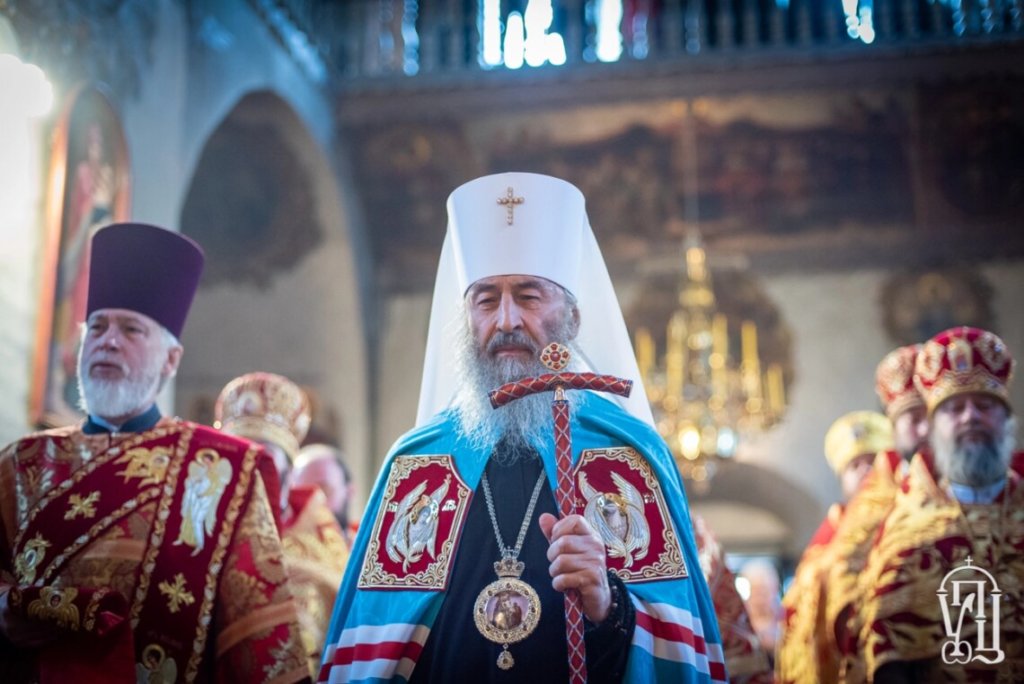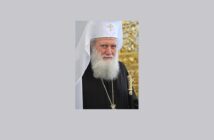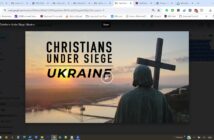Source: Peter Anderson, Seattle USA
There have been several reports in the last few days that enough deputies in the Ukrainian parliament (Verkhovna Rada) have pledged their support for the passage for Draft Law 8371. Draft Law 8371 has been pending in the Rada for more than nine months but had not been submitted to the Rada for the first reading because of lack of majority support in the Rada. However, Oleg Dunda, a deputy in the Rada, stated on October 6: “The appeal of the People’s Deputies to ban the UOC-MP has already collected about 240 signatures, and in reality, votes for around 250. There is no doubt that when this draft law [8371] is introduced, it will be voted on without problems.” [link] The support of 226 deputies is required for the passage of a draft law at the first reading. [link] As can be seen from the foregoing quotation from Oleg Dunda, the purpose and effect of Draft Law 8371, at least in the eyes of its supporters in the Rada, is to “ban” the Ukrainian Orthodox Church (UOC or UOC-MP).
Draft Law 8371 had been submitted to the Rada by Prime Minister Denys Shmyhal on January 19, 2023, and had been assigned to the Rada’s Committee on Humanitarian and Information Policy. [link] It had been introduced in the Rada by the Prime Minister pursuant to a decision of the National Security and Defense Council (chaired by President Zelensky) on December 1, 2022, which in part directed the Cabinet of Ministers to “submit to the Verkhovna Rada of Ukraine for consideration within a two-month period a draft law on making it impossible to operate in Ukraine religious organizations affiliated with centers of influence in the Russian Federation in accordance with the norms of international law in the field of freedom of conscience and Ukraine’s obligations in connection with joining the Council of Europe.” [link]
Draft Law 8371 seeks to amend the Ukrainian law “On the freedom of conscience and religious organizations” in certain respects. The full text of the existing law presently in effect can be read at [link]. The full text of Draft Law 8371, seeking to amend the existing law, can be read in Ukrainian at [link]. By far the most important change reflected in Draft Law 8371 is the addition of the following sentence to Article 5 (separation of church and state): “Activities of religious organizations that are affiliated with the centers of influence of a religious organization (association), the governing center (control) of which is located outside of Ukraine in a state that carries out armed aggression against Ukraine, are not allowed.” [“Не допускається діяльність релігійних організацій, які афілійовані із центрами впливу релігійної організації (об’єднання), керівний центр (управління) якої знаходиться за межами України в державі, яка здійснює збройну агресію проти України.”] Comparing the decision of the National Security and Defense Council (quoted above) with this key sentence from Draft Law 8371 (also quoted above), one can see that the key sentence closely tracks the first part of the decision of the National Security and Defense Council. However, Draft Law 8371 completely ignores the second part of the decision which provides “in accordance with the norms of international law in the field of freedom of conscience and Ukraine’s obligations in connection with joining the Council of Europe.”
A proviso could have easily been added to Draft Law 8371 which states: “Provided, nothing in this statute shall conflict with the norms of international law in the field of freedom of conscience.” Omission of such language can only be considered intentional on the part of the drafters as it is part of the same sentence from which the key language in Draft Law 8371 was adopted. This omission is a matter of great concern as it may indicate that the drafters of 8371 feared that the inclusion of such a proviso might interfere with what the supporters of 8371 were intending to accomplish — the banning of the UOC. Another matter of great concern is that there is no requirement in 8371 that it be shown that the church activities sought to be prohibited pose a genuine threat to national security. If the government of Ukraine seeks to ban or limit a particular church in Ukraine, it would seem that overriding the rights of freedom of religion would require proof that the church poses an actual threat to the national security of Ukraine. However, Draft Law 8371 says nothing about national security. Draft Law 8371 could have been easily drafted to include an express requirement that an actual threat to national security must be proven in order to limit the activities of a religious organization.
The language of the key sentence of Draft Law 8371 (“Activities of religious organizations that are affiliated with the centers of influence of a religious organization (association), the governing center (control) of which is located outside of Ukraine in a state that carries out armed aggression against Ukraine, are not allowed.”) is extremely ambiguous and the terms used are nowhere defined in the Draft Law. Shortly after Draft Law 8371 was referred to the Rada’s Committee on Humanitarian and Information Policy, the Committee in turn referred the Draft Law to the “Scientific – Expert Department of the Rada” for its opinion. The resulting opinion of the department can be read at [link]. The opinion of the department is highly critical of Draft Law 8371. For example, it states:
- In the amendments to Art. 5 of the Law proposes to provide that “the activities of religious organizations that are affiliated with the centers of influence of a religious organization (association), the governing center (control) of which is located outside of Ukraine in a state that carries out armed aggression against Ukraine, are not allowed.” In this regard, we note the following. The law, which is proposed to be amended, does not contain a definition of the terms “religious organization that are affiliated with centers of influence,” “center of influence of a religious organization (association),” “governing center.” At the same time, the draft law does not disclose their purpose [зміст] , which, in our opinion, does not take into account the requirements regarding the need to comply with the principle of legal certainty. [At this point, the Department discusses opinions of the Constitutional Court of Ukraine requiring legal certainty, clarity, and comprehensibility of legal norms.]
Even though the Rada’s own expert department concluded that the language of Draft Law 8371 does not comply with the constitutional requirement of certainty, it appears that Draft Law 8371 will be submitted to Rada for adoption on the first reading without any modifications whatsoever to cure the defects found by the Rada’s own expert department. Essentially, the opinion of the Rada’s expert department is being totally ignored.
The key sentence of Draft Law 8371 also includes terms which seem completely out of place in describing relationships between church organizations. The term “affiliated” is normally applied with respect to business relationships. What it means in a religious context is completely unclear. Personally, I have never heard the phrase “centers of influence” used in a religious context. On the other hand, it would be easy to draft language which is clear and understandable. For example, the key sentence could read: “Activities of religious organizations which are actually controlled and managed by an organization in the Russian Federation and which pose a threat to the national security of Ukraine are not allowed.” In my opinion such language would be clear and would comply with international norms relating to freedom of religion. Instead, Draft Law 8371 uses very ambiguous language which is subject to many different interpretations. This lack of clarity and guidance greatly increases the possibility that Law 8371 could be used to deny religious rights contrary to international norms.
At the present time, there are conservative Republicans in the United States who oppose additional funding to Ukraine. Some of these conservatives use the restrictions imposed by the Ukrainian government on certain aspects of the exercise of the freedom of religion as one of the reasons for their opposition to funding. See, for example, [link]. If I were one of those conservative Republicans, I would now use Draft Law 8371 as one of my prime examples.
Peter Anderson, Seattle USA




